INTERVIEW: ITF Instituting Unified Collective Bargaining Agreement for Maritime Workers in Africa -VP, Adeyanju
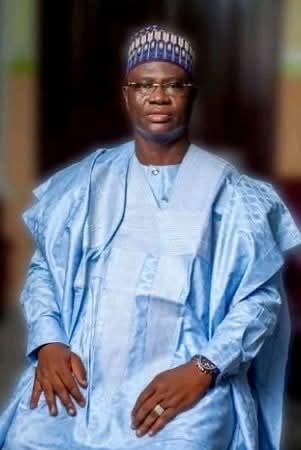
Dr. Adewale Adeyanju Vice President of the International Transport Workers Federation (ITF) and Chairman, ITF Africa spoke to Ismail Aniemu on the body’s activities in Africa.
Adeyanju who just served out his two terms as President General of the Maritime Workers Union of Nigeria, said the international body is committed to enhancing transport workers welfare across Africa while promoting a peer review and comparison policy for workers benefit.
Adeyanju spoke shortly after he was honoured with an Award of Excellence at the Success In Leadership Conference(SILC) in Lagos
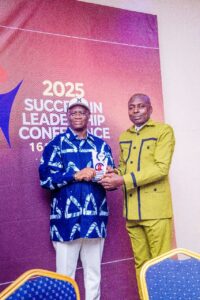
(Q) First of all, congratulations on your recent award. How does it feel like for you?
I feel elated every single day. Each morning, I thank God for the grace and honour to be alive and to have played a meaningful role in the maritime industry. Many of my colleagues and counterparts who were part of this long struggle are no longer with us, and I don’t take that for granted.
Leadership is temporary, and we must always remember that no matter how long we serve, the time will come when we must step aside. Whatever success people attribute to me is the result of collective effort from my team to the workers, and the strong unity we shared throughout the years.
Even in the most difficult times, the support I received never wavered. The press stood by me when the revolution was tough, just as they did in the early days when figures like Chief Ogunleye were shaping the ports. Those were challenging times, but by God’s grace, I rose through the ranks and found myself where I am today. Despite having left office four or five months ago, it humbles me that people still remember and honour me. These recognitions from workers, employers, and the media are deeply appreciated and form an important part of my journey.
I remain grateful to God and to everyone who walked with me during my tenure as President General of the union. We continue to move forward, staying true to our motto: “Forward Ever, Backward Never.” My advice to anyone in leadership is to serve with diligence, humility, and understanding, knowing that the people you lead may one day follow in your footsteps. While it’s impossible to satisfy everyone, the continued support I receive from stakeholders today reminds me that we must always lead with purpose and integrity.
(Q) Within the short period,how would you appraise your successor so far?
There’s no way I would condemn the office I once led just as one wouldn’t say their own house is in disarray. Organising a national conference, district elections, and unit elections is no small feat. The current President General, who was part of my team, understands the system very well. He’s been able to navigate the responsibilities with ease because we handed over a well structured and stable union to him . It’s a baton of leadership passed on a platter of gold.
We recently witnessed his performance during the election in Warri, and I must say he is doing quite well. Managing the four branches of the union is no easy task they are like four different “wives,” each with their own unique character. The approach needed for seafarers differs from that for dock workers, and similarly, managing shippers is different from handling the Nigerian Ports Authority (NPA). Each branch has its own peculiarities , expectations, and he’s handling them commendably. I continue to offer him guidance and advice where necessary, to ensure the system remains strong and continues to progress.

(Q) You are the number one representative of the International Transport Workers’ Federation (ITF) in Africa, and particularly in Nigeria. However, there is a perception that the ITF’s presence has not been strongly felt in recent times. Can you shed some light on the reasons behind this seeming silence?
The perceived silence from the International Transport Workers’ Federation (ITF) is due to an ongoing project worth nearly £400,000,. The Minister of Marine and Blue Economy, Adegboyega Oyetola, has already given his approval to provide land for the project. I recently discussed the matter with the President-General of the Maritime Workers’ Union of Nigeria (MWUN), and he updated me on the progress. However, the government won’t release funds to purchase land directly, as such assets are often subject to disputes with land grabbers. Similarly, the ITF cannot disburse funds until they receive proper documentation from the government confirming that the land has been officially allocated to MWUN and is fully secured under government supervision.
The ITF is not inactive we’re simply navigating these bureaucratic hurdles. Since I assumed office nearly a year ago, securing land has remained the primary obstacle. If MWUN were not held in such high regard, this opportunity could have easily been shifted to another country, as the ITF does not tolerate unnecessary delays. Fortunately, the ITF President and General Secretary have already visited the Minister, who assured them that land will be provided. Ideally, this responsibility should fall to the Nigerian Maritime Administration and Safety Agency (NIMASA), and I’ve met with its Director General, Dr. Dayo Mobereola, who has also promised that the issue will be resolved soon. Once the land is secured, ITF’s presence will become much more visible and active in Nigeria
(Q) While serving as the President General of MWUN, your hands were often tied due to the demands of the office. Now, as the Deputy President of the Nigeria Labour Congress (NLC), how are you managing your responsibilities in this new role alongside the time and expectations of the NLC President?
There’s a clear distinction between being the President General of a specific union like the Maritime Workers’ Union of Nigeria (MWUN) and serving as an affiliate representative within the Nigeria Labour Congress (NLC). The NLC functions as a central labour body made up of various affiliated unions, so the responsibilities differ significantly. While I was officially and originally elected to lead MWUN, my current role now gives more room to focus on broader labour matters, especially in relation to the International Transport Workers’ Federation (ITF), which is currently receiving much of my attention. The workload from MWUN has reduced, allowing me to take on more international engagements such as my upcoming assignment in Rwanda.
We’re now making major efforts to strengthen ITF’s presence across Africa, starting with plans to host the African Regional Conference this December in Abuja. Part of this initiative involves mobilizing more affiliates from the maritime sector in Nigeria. For instance, the Nigerian Ports Authority (NPA) is already a full ITF member, and we are also working closely with dock workers and seafarers who have recently renewed their registrations. In the coming months, stakeholders across the sector will begin to see a more active and visible ITF presence in Nigeria, as we intensify awareness and engagement efforts across all affiliated bodies.
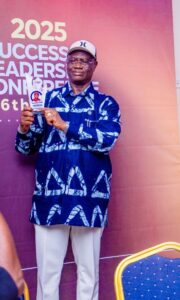
(Q) Concerning the port concession, as we speak, the government is slow to renew some licenses.Do you support indigenous operation or there is need for new investors to come in?
Previously, what we had in place was a Public Private Partnership (PPP) arrangement, commonly referred to as concessioning. Essentially, the government delegated part of its responsibilities to private entities to manage, and those concessionaires, in turn, have their own business partners. We have always supported indigenous terminal operators while also encouraging foreign investors to contribute to the development of our ports and overall infrastructure. Our ports, in terms of size and potential, are more advanced than those of countries like Ghana, but we still need the right expertise to fully develop them. However, while seeking that expertise, we must not sideline or write off indigenous operators who have significantly invested in the system.
The major concern in this whole conversation is not just about infrastructure , it’s about people. Government decisions often come with uncertainties, especially when licenses of terminal operators are being reviewed or reallocated. The fear among workers , dockworkers, those in shipping, and NPA staff is very real. They wonder if new operators come in, what happens to their jobs? Will they be paid off, laid off, or retained? These are the questions that create anxiety. Labour unions will always stand firm to defend the welfare and job security of all workers affected by such transitions. If there’s going to be a license renewal or change, there must be clear timelines and terms. It’s not just about government decisions, the unions must be part of the process to ensure fairness and continuity.
The truth is that many of these indigenous terminal operators have invested heavily not just in infrastructure but in human capital. They’ve built strong, cordial relationships with their workers, including dockworkers and those in the shipping sector. Some shipping companies are also terminal operators, such as Cross Marine (a five-star logistics company owned by Danjuma), and others like Dangote, who now operates his own port in Lekki, separate from the Lekki Free Trade Zone. These operators are creating employment and contributing to the economy. So, while we welcome development and reforms, we must ensure that the welfare of the workers is not trampled upon in the process of renewing or reassigning terminal licenses.
(Q) Looking at moving from the local to global stage as a unionist operating at ITF level. Could you give us an overview of ITF’s program for Africa? Not only for Nigeria now but for Africa as a whole. What is Africa going to gain from ITF under your watch?
As a unionist operating at the ITF level, there is a tremendous opportunity for Africa, and particularly Nigeria, to benefit from the initiatives we’re working on. ITF’s programs for Africa are not just about improving the local conditions for workers; they are also about positioning the continent on a global stage. Under my leadership, we aim to strengthen the connectivity between African countries and the ITF, particularly by ensuring that governments and affiliates connect more closely. By improving this collaboration, Nigeria and Africa as a whole stand to gain not only in terms of better working conditions but also through stronger economic partnerships and collective bargaining agreements (CBAs) that can set standards across the continent. We are already working towards a unified CBA that could potentially cover all of West Africa, which would be a significant achievement.
In addition, Nigeria stands to benefit greatly from ITF’s outreach and engagement with global transport networks. I recently discussed with representatives of the Minister of Marine and Blue Economy about the importance of securing a position with the International Maritime Organization (IMO) Category C, something that Nigeria has long pursued. The Minister is now taking proactive steps by showcasing Nigeria’s maritime potential to other nations, but we also need to connect with the affiliates. For instance, ITF’s Collective Bargaining Agreements are already being promoted to African countries, many of which don’t yet have them in place. Without a CBA, there’s no formal mechanism for employers and employees to negotiate working conditions or standards. We are also focusing on promoting the blue economy in Nigeria, particularly in sectors like fishing and haulage, which are key contributors to Morocco’s economy and could similarly benefit Nigeria if we make better use of our resources.
The upcoming African Regional Conference in December, which will be hosted in Abuja for the first time, is another milestone for us. We are working to connect with the Nigerian government to ensure that we are leveraging all opportunities available to advance Africa’s maritime sector. The blue economy, in particular, requires more than just office based advocacy it needs on the ground awareness and action. Nigeria’s resources, especially in sectors like fishing, are underutilised, and if we learn from other countries that have succeeded in these industries, we can make significant progress. It’s time for Nigeria to stop lagging behind and start benefiting from its full potential on the global stage. We can no longer afford to keep crawling in maritime affairs when we call ourselves the giant of Africa.
(Q)Looking at an African wide cabotage.We have an African marine or transport sector that is controlled by foreigners. Is ITF having a concept that will attract African investors to take charge?
I want to sincerely thank the Regional Secretary of ITF, formerly the President of the Aviation Union and now the General Secretary, for his efforts in ensuring both aviation and maritime sectors are actively involved in ITF activities across Africa. The ITF is quick to respond whenever challenges arise in any African country, especially concerning cabotage. Personally, I continue to grow in this role my approach now is very different from when I was solely in the maritime sector. I was recently invited to a high-level meeting between Ghana and Kenya, where I was commended for my contributions, which shows the value of having a strong unionist background. The Minister of Marine and Blue Economy is doing an impressive job and should be supported, particularly in raising awareness, as many stakeholders still don’t fully understand the concept of the blue economy. We must not remain silent about what we believe in. ITF is here to stay in Nigeria and across Africa, and it’s time for Nigerian maritime workers to begin benefiting more substantially from this global platform.
(Q) Tell us your greatest challenge so far on this new task at the global level.
One of the key challenges I face in my international role is the language barrier. For instance, when I visit francophone countries like Portugal, I often require an interpreter because I don’t speak French. While they can understand some English, communication can still be slow and difficult especially since we Africans tend to speak quickly, while they speak more slowly. I’ve had to adjust by slowing down my speech to ensure I’m understood. Beyond language, it also takes time to understand people’s attitudes and culture, which is essential for effective collaboration. During my recent one week trip to Kenya and Ghana, I realised the importance of building stronger connections with colleagues across the continent. When I introduced the concept of our Collective Bargaining Agreement (CBA), many were surprised, they had never worked with one before. Even Ghana, which is often seen as a competitor to Nigeria in the region, lacks a formal CBA, and countries like Liberia also face significant labour challenges. In Liberia, for example, APM Terminals sacked 23 union executives. Before I left office, I had to intervene by shutting down APMT operations in Nigeria for three days, which ultimately led to the reinstatement of all affected officials, including the union president. This showed the strength of MWUN and the influence of ITF, which stands firmly behind its members when necessary. I commend the Minister of Marine and Blue Economy for his strong performance, and also the new Director General of NIMASA, who is beginning to show positive signs of transformation in the agency.
(Q) ) I remember the last time I had a one on one interview with you. You said the present president general is marketable, sellable and you really can vouch for him. Are you impressed with at is happening now?
I haven’t seen anything negative happening so far. I’m genuinely impressed with the current President General of the Maritime Workers’ Union of Nigeria (MWUN). He remains marketable and sellable, which are the key words I often use to describe capable leadership. What he needs now is proper guidance, and I do my part by offering advice whenever necessary. It’s important to understand that being President General of MWUN is no easy task. He must work hard to consolidate on the achievements of his predecessor, and from what I’ve observed, he is doing his best. We speak regularly, and I provide him with insights when needed, but I do not control leaders. Leadership must be exercised independently, with responsibility.
The position comes with enormous demands, especially in dealing with the dockworkers, who are a very unique group. To succeed, he must build a strong connection with them and ensure balanced, fair judgment in all matters. As the current leader and father figure of MWUN, he deserves the support of everyone so the union can continue moving forward, true to our motto: forward ever, backward never. It’s also important to note that being a branch president is entirely different from leading the entire union. As President General, your phone never stops ringing, and your schedule is packed with meetings and commitments you often have very little time for yourself.






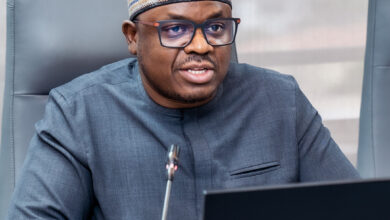
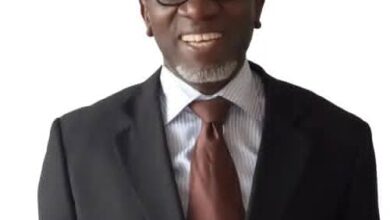
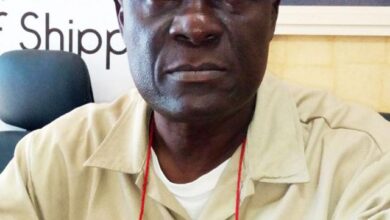
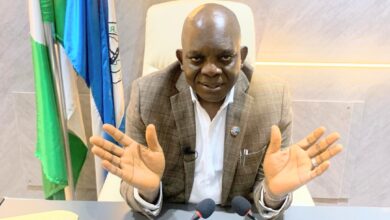
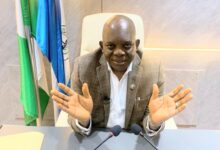
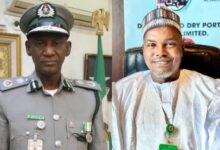
Interesting analysis! Seeing trends in games of chance is fascinating. BossJL seems to be building a strong, secure platform – a modern take on classic fun with bossjl games. Registration looks straightforward too! 🤔
Interesting read! The cultural aspect of online platforms is often overlooked. Seeing sites like no1jl app really cater to local tastes is smart. Security & easy onboarding (like verifying ID) are key for trust, too! 👍